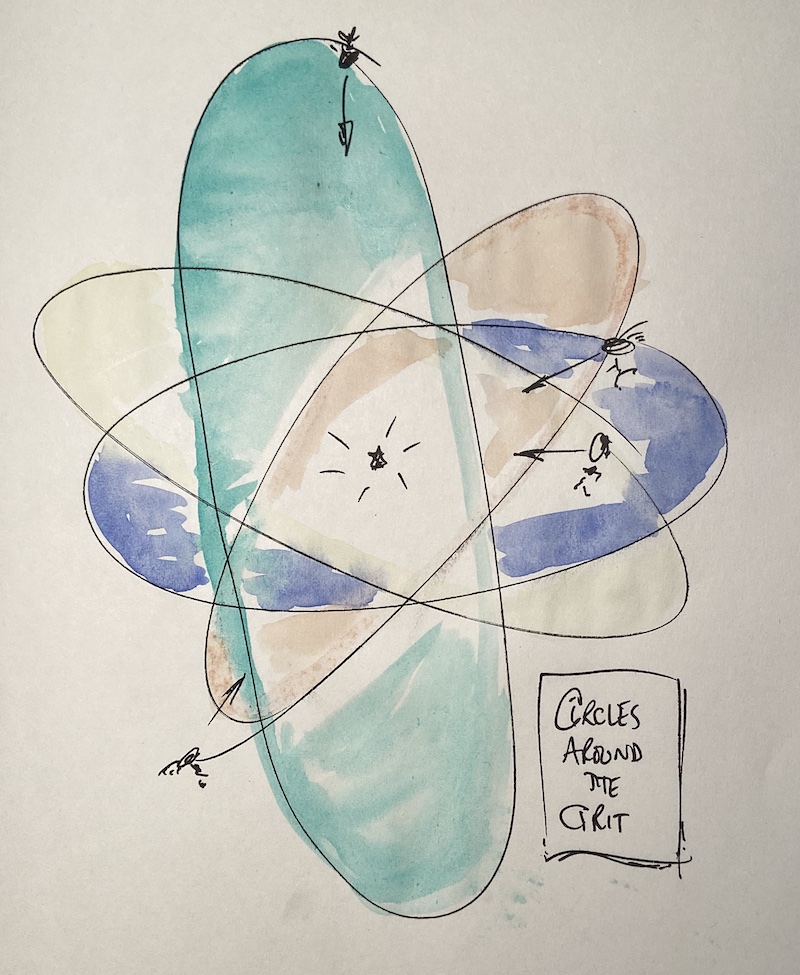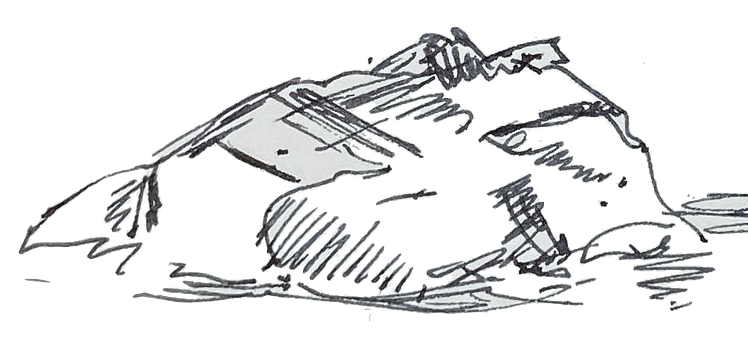RESEARCH
Circles Around The Grit: seeking a pedagogy for pre-knowledge
But saving the race is nothing in itself. As I say, that’s only being rats. It’s saving our knowledge and adding to it is the thing. There men like you come in. There’s books, there’s models. We must make great safe places down deep, and get all the books we can; not novels and poetry swipes, but ideas, science books. That’s where men like you come in. We must go to the British Museum and pick all those books through. Especially we must keep up our science—learn more. (the Artillery Man, in Wells, 1898, 259–60)
Everybody in society is an expert in education. We all went to school and learned how it works, what is wrong with it, and how it might be sustained or improved. Those of us who go on to become educators ourselves carry all of that baggage with us. We then realise that being a teacher isn’t as easy as we thought it was going to be. We seek to appear knowledgeable, epsecially in the promotion interview, and latch on to the silver bullets and quick fixes of current popular thinking, especially if those are “research-informed” or “evidence-based.” The white colonial voice dominates the culture and government of schooling, especially state schooling. The independent and academy schools are slaves to market forces which are themselves charateristic of conservative capital and the desire for the preservation of privilege.
The logical, the scientific, the traceable somehow, to some axiomatic truth, is the paradigm of validity we require. Even if we can’t quite trace all of the steps ourselves, we believe in science and the verismilitude of science that is the foundation of our education, along with those certainties of fact that are written in books. And yet we are dissatisfied.
Hidden in plain sight may be the seeds of educational revolution.
To examine this idea, I am going to ask student secondary teachers to listen to a short (about 20 to 30 minutes, maybe) audio sequence as a learning module and ask them to respond to the experience. The sequence will have a broad theme of a difficult or complex topic, following a general format inspired by the BBC radio programme, Something Understood, in which
“Presenters choose a theme that interests them and then pick pieces of music, poetry and prose. […] The presenter then circles around the grit until the end of the programme, when they may or may not have an answer.” (LOFTUS, 2007)
Using arts-based methodology (Leavy, 2020; Greenwood, 2019; Finley, 2008), we will explore and create manifestations of the response to the audio in order to consider what Einstein described as a kind of “pre-knowing” (Root-Bernstein, 2002), that way of knowing something before you can write it down (Heisenberg, 1974).

